Petrochemical Carbon Fiber Automotive News 12-12-2019 - Arhive
Petrochemical Carbon Fiber Automotive
-Crude Oil Prices Trend

Royal DSM, a global science-based company in nutrition, health and sustainable living, today announces new sustainability ambitions for Dyneema®, the world’s strongest fiber™. In doing so, DSM aims to realize a more transparent and circular value chain for Dyneema, including improved sustainable business operations together with partners and suppliers.
The new targets for DSM’s Dyneema portfolio address industry-specific demands and are fully aligned with DSM’s commitment to create brighter lives for all and focused on the three key areas in which DSM is driving sustainable markets: Nutrition & Health, Climate & Energy and Resources & Circularity. This follows DSM’s strategy ‘Growth & Value – Purpose led, Performance driven’.
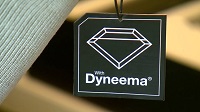
-Reliance to adopt CertainT platform for recycled PET
Applied DNA Sciences, Inc. (Applied DNA), a leader in large-scale PCR-based DNA manufacturing and authentication, announced today that it has signed a non-binding memorandum of understanding (MOU) with Reliance Industries Ltd. (RIL) to develop and commercialize apparel made from RIL’s R|Elan GreenGold fabric and Recron GreenGold recycled polyester fibre and filament powered by CertainT.Petrochemical Carbon Fiber Automotive
The collaboration as set forth in the MOU, provides for potentially extending apparel manufacturing using R|Elan GreenGold, and the use of recycled polyester through Recron GreenGold into consumer and industrial applications in the global markets.

Sorting Machines Market: Introduction
Sorting is arranging items in systematical way or grouping similar items.
Sorting Machines are used to separate things into predetermined ways. Sorting Machines are designed to make things easier and the Sorting Machine techniques can be optical sorting, digital sorting, sensor sorting, magnet sorting and many more and these equipment sort objects on the basis of color, structural properties, weight, size, chemical composition, shape etc. in automated manner. Petrochemical Carbon Fiber Automotive
Color sorting machine technology can be camera, X-ray, Laser, LED based, Hyper Spectral Imaging. Food sorting machines are integration of mechanical and optical sorting technologies.

AIMPLAS has set up the FLEXOTRONICA project, which aims to develop flexible electronics and plastic electronics solutions based on lightweight, electrically conductive plastics that can be adapted to complex geometries. Petrochemical Carbon Fiber Automotive
These advances will make it possible to integrate lightweight electromagnetic shielding elements in vehicles to prevent interference, as well as capacitive surfaces that eliminate the need for buttons, screens, LEDs, and circuits.
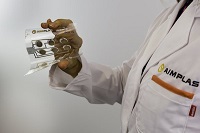
Demand for mono-materials in packaging has been growing as the industry moves from a linear to a circular economy. We spoke to Lorena Rodríguez, researcher at the Functional Printing and Coatings Department of AIMPLAS, and asked her about challenges and possible solutions.Petrochemical Carbon Fiber Automotive
-Have you observed a growth in the use of mono-materials in the packaging industry, and if so, what do you think lies behind that growth?
Nowadays, there is a paradigm change, from a linear to a circular economy, to ensure there’s enough food, water and prosperity in 2050.
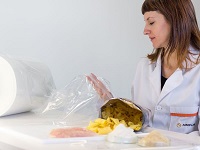
Heightened awareness of plastics pollution has driven an unprecedented level of interest in rPET, with a raft of collection and recycling commitments, reports industry analyst Wood Mackenzie.Petrochemical Carbon Fiber Automotive
“Beyond regulatory commitments, such as the EU’s single-use plastics directive that was announced earlier this year, ambitious recycled content sustainability goals have been publicised by many brand owners,” explained principal analyst said Pieterjan Van Uytvanck.“Some brand owner targets exceed the EU single-use plastics directive, further highlighting the momentum behind the shift towards achieving a circular economy.”
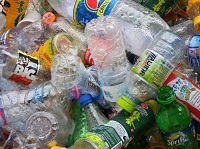
-Stora Enso and Sulapac bring sustainable straw to market
Stora Enso and Sulapac are launching a renewable and biodegradable straw to combat the global problem of plastic waste.
The straw has strong usability and works just like a traditional straw. The new straws are available to brands and consumers looking for more eco-friendly solutions.
The first customers include Finnair’s lounges in Helsinki, replacing their plastic and paper straws, food delivery platform Wolt, the alcoholic beverage brand company Altia, Hotel St. George, and vegan café Kippo, among others.

Finnish startup Sulapac has raised €15 million to boost its plans to scale up and internationalise. Investors include the world’s leading luxury house Chanel and international media houses, all with valuable expertise to accelerate Sulapac’s expansion.
The investment round will enable Sulapac, the startup replacing plastic with its microplastic-free material innovation, to scale-up its material production and continue the development of new and improved formulas, including a flexible version of its Universal Material for Injection Molding.

-How can we accelerate ‘circular’ plastics?
Around 26% of top 100 brands say they want to reduce plastics production, according to Daniel Nordigarden of McKinsey & Company.
If plastics demand follows its current trajectory, the global volume of plastic scrap could grow ‘tremendously’, Recycling International heard at the recent Paper & Plastics Recycling Conference in Barcelona. ‘Figures are predicted to go up from 260 million tons per year in 2016 to 460 million tons per year by 2030,’ Nordigard reports.
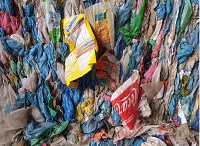
Petrochemical PEF Bioplastics Automotive News 11-12-2019
Petrochemical Carbon Fiber Automotive
